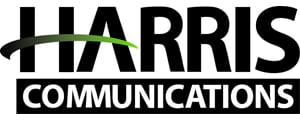The Rise of Technology in Senior Care How Tech is Transforming the Industry
In recent years, the senior care industry has witnessed a significant transformation, largely driven by the advent and integration of revolutionary technology. With an aging population that’s growing rapidly, the demand for innovative solutions to enhance the quality of life for seniors has never been higher. Today’s technology is not only ensuring that elder care services are more efficient and effective but also empowering seniors to lead more independent and fulfilling lives.
From virtual health assessments to smart home systems, technology is stepping in to fill the gaps in traditional caretaking practices. It’s reshaping the way caregivers interact with the elderly, how medical care is administered, and how seniors connect with their loved ones and the world around them. This article delves into ten key areas where technology is making a profound impact on senior care, redefining the future of aging with dignity, safety, and comfort.
Health Monitoring and Management Systems:
- Wearable Devices:
- Track vital signs like heart rate and blood pressure.
- Monitor sleep patterns and physical activity levels.
- Provide reminders for medication and hydration.
- Remote Monitoring:
- Allow healthcare professionals to monitor patients remotely.
- Alert caregivers to unusual changes in behaviour or health.
- Facilitate telemedicine visits with doctors.
- Personal Emergency Response Systems (PERS):
- Offer instant access to help with the push of a button.
- Include fall detection features.
- Often GPS-enabled for outside-the-home safety.
- Medication Management Tools:
- Automated pill dispensers to prevent missed or double dosages.
- Smartphone apps for medication reminders and tracking.
- Integrated with caregivers’ monitoring systems to alert them on missed medications.
- Digital Health Records:
- Provide real-time access to medical histories and patient data.
- Streamline communication between multiple healthcare providers.
- Enhance the accuracy of medical information and reduce errors.
- AI-Powered Diagnostics:
- Use algorithms to detect health issues early.
- Support physicians in making more accurate diagnoses.
- Personalize treatment plans based on predictive analytics.
- Virtual Reality (VR) for Cognitive Health:
- Stimulate cognitive functions and memory through VR experiences.
- Provide therapeutic activities for those with dementia or Alzheimer’s.
- Offer virtual travel experiences to boost mental health.
- Voice-Activated Assistants:
- Enable hands-free control of the home environment.
- Help with tasks such as making calls and setting reminders.
- Allow seniors to control lights, thermostats, and locks with voice commands.
- Sensor-Based Alerts:
- Detect movements and send alerts for unusual inactivity.
- Monitor room temperatures to ensure a safe living environment.
- Automatically turn off stoves and other appliances if left unattended.
- Robotics:
- Robotic vacuum cleaners for hassle-free cleaning.
- Social robots that can provide companionship and entertainment.
- Assistive robots that help with mobility and lifting.
- Wearable Tech for Indoor Navigation:
- Help visually impaired seniors navigate their homes.
- Alert users to obstacles or changes in the layout.
- Smart Lighting Systems:
- Adjust lighting based on the time of day to support circadian rhythms.
- Motion-activated lights to prevent falls during the night.
- Automated Grocery and Prescription Delivery:
- Schedule and manage deliveries through smart devices.
- Ensure regular replenishment of essential items.
- Smart Locks and Security Systems:
- Provide secure, keyless entry for caregivers and family members.
- Allow remote monitoring of home security.
Social Connectivity and Engagement:
- Video Calling Platforms:
- Facilitate face-to-face communication with family and friends.
- Support group calls for community events and socializing.
- Social Media and Online Communities:
- Help seniors stay connected with peers and interest groups.
- Provide a platform for sharing experiences and advice.
- Virtual Reality Social Spaces:
- Create immersive environments for socializing and gaming.
- Allow seniors to attend virtual events and meet-ups.
- Online Learning and Workshops:
- Offer courses and workshops tailored to senior interests.
- Provide opportunities for lifelong learning and skill development.
- E-Readers and Digital Libraries:
- Give access to a vast range of books and publications.
- Feature adjustable text sizes and audiobooks for those with visual impairments.
- Gaming and Brain-Training Apps:
- Engage seniors with fun and stimulating games.
- Support cognitive health through problem-solving and memory games.
- Virtual Travel and Exploration:
- Enable seniors to explore new places through virtual tours.
- Provide a sense of adventure and new experiences without physical travel.
Transportation and Mobility Solutions:
- Ride-Sharing Services for Seniors:
- Specialized services with additional support for older adults.
- Easy-to-use apps with options for family members to manage rides.
- Electric Wheelchairs and Scooters:
- Enhance mobility with user-friendly controls.
- Offer long battery life and portability for greater independence.
- GPS Devices and Apps:
- Help seniors navigate unfamiliar locations safely.
- Allow family members to track loved ones for peace of mind.
- Smart Canes and Walkers:
- Integrate sensors to detect obstacles and falls.
- Provide location tracking and emergency alerts.
- Accessible Public Transportation Information:
- Real-time updates and services for planning trips with accessibility needs.
- Vehicle Adaptations and Assistive Technologies:
- Customizable vehicle modifications for seniors with mobility challenges.
- Technologies like backup cameras and blind-spot warnings for safer driving.
- Autonomous Vehicles:
- Future potential for fully autonomous cars to provide independent transportation.
Advanced Assistive Technologies:
- Hearing Aids with Bluetooth Connectivity:
- Stream audio directly from devices like phones and TVs.
- Offer personalized settings controlled via smartphone apps.
- High-Tech Prosthetics and Orthotics:
- Use advanced materials and sensors for a more natural feel and movement.
- Include options for remote fine-tuning and adjustments.
- Voice-to-Text and Text-to-Speech Software:
- Assist those with hearing or speech impairments in communicating effectively.
- Offer real-time captioning of conversations.
- Smart Glasses for the Visually Impaired:
- Provide visual assistance through augmented reality (AR).
- Read out text from books, signs, and menus.
- Adaptive Keyboards and Input Devices:
- Ergonomically designed for those with arthritis or hand tremors.
- Include voice command options for computers and smart devices.
- Home Automation for Accessibility:
- Control home systems with minimal physical interaction.
- Customize settings for individual needs and preferences.
- Mobility Exoskeletons:
- Offer support for walking and standing to those with mobility issues.
- It could provide rehabilitation benefits after surgery or injury.
Virtual Health and Wellness Services:
- Telehealth Appointments:
- Enable doctor consultations from the comfort of your home.
- Reduce the need for travel and waiting rooms.
- Online Therapy and Mental Health Support:
- Access to certified therapists and support groups.
- Digital platforms for managing mental health conditions.
- Fitness and Exercise Programs:
- Customizable workout routines for different fitness levels.
- Include options for both physical and cognitive exercises.
- Nutrition Planning and Tracking Apps:
- Help seniors monitor their diet and nutritional intake.
- Offer recipes and meal plans tailored to health needs.
- Virtual Reality for Pain Management:
- Use immersive experiences to manage chronic pain.
- Serve as a form of distraction therapy.
- Wearable Fitness Trackers:
- Encourage active lifestyles through goal setting and progress tracking.
- Monitor heart rates and steps, and provide reminders to stay active.
- Online Medication Ordering and Information Services:
- Conveniently refills prescriptions online.
- Provide access to pharmaceutical information and possible side effects.
Training for Caregivers and Elderly:
- Online Certification Programs for Caregivers:
- Enhance their skills and knowledge in eldercare.
- Offer specialization in areas like dementia care and palliative support.
- Technology Workshops for Seniors:
- Teach seniors how to use new technologies efficiently.
- Include basic computer skills, internet safety, and digital communication.
- Virtual Simulations for Caregiver Training:
- Prepare caregivers for a variety of scenarios through VR experiences.
- Train in emergency response and everyday care practices.
- Eldercare Resource Platforms:
- Offer information on maximizing the benefits of assistive technology.
- Provide tips for integrating technology into daily care routines.
- Support Forums for Caregivers:
- Share experiences and advice with other caregivers.
- Find support for the unique challenges of eldercare.
- AI Chatbots for Companionship and Practice:
- Assist seniors in becoming more comfortable with digital conversations.
- Help caregivers practice language skills for non-native speakers.
- Multilingual Support and Training:
- Cater to diverse linguistic backgrounds for both seniors and caregivers.
- Expand accessibility of tech tools through multi-language interfaces.
Emergency Response and Disaster Preparedness:
- Mobile Apps for Emergency Alerts:
- Notify seniors and caregivers about local emergencies and disasters.
- Offer advice on immediate actions and safety measures.
- Smart Watches with SOS Features:
- Include panic buttons that alert family members and emergency services.
- Integrated with health monitoring for automated emergency notifications.
- Disaster Preparedness Training:
- Virtual courses and simulations for dealing with different types of emergencies.
- Provide checklists and guides for disaster readiness.
- Backup Communication Devices:
- Ensure contact with the outside world, even during power outages.
- Battery-powered or hand-crank radios and satellite phones.
- Location-Based Services:
- Assist in the tracking and retrieval of those who may wander, such as individuals with dementia.
- Offer geofencing alerts to caregivers.
- Automated Home Safety Checks:
- Systems to detect fire, gas leaks, or water damage and send immediate alerts.
- Regularly test and report on the functionality of alarms and sensors.
- Community Support Networks:
- Digital platforms that organize local communities for assistance during emergencies.
- Facilitate collaboration and volunteer mobilization.
Data Analytics and Improved Care Coordination:
- Data-Driven Insights for Personalized Care:
- Analyze health data to tailor care to individual needs.
- Predict and prevent potential health issues through trend analysis.
- Interoperable Health Systems:
- Streamline communication between various healthcare providers.
- Ensure all caregivers have up-to-date patient information.
- AI for Operational Efficiency:
- Optimize schedules and staffing within care facilities.
- Automate administrative tasks to allow more time for patient care.
- Cloud-Based Platforms for Care Management:
- Centralize patient records and care plans for easy access.
- Securely share information with authorized family members and healthcare professionals.
- Outcome Tracking and Reporting:
- Monitor the effectiveness of care strategies and adjust as necessary.
- Provide transparency in care outcomes for seniors and their families.
- Population Health Management Tools:
- Address the needs of senior communities on a larger scale.
- Identify and manage health risks within populations.
- Big Data for Healthcare Research:
- Contribute to medical research focused on aging and age-related diseases.
- Use large datasets to understand trends and improve senior healthcare services.
End-of-Life Planning and Management:
- Digital Platforms for Advanced Directives:
- Store and manage legal documents like living wills and DNR orders.
- Ensure wishes are respected and easily accessible to healthcare professionals.
- Virtual Memorial Services:
- Offer a way for family and friends to participate in memorials remotely.
- Create digital tributes that can be shared and preserved.
- Online Bereavement and Counseling Services:
- Provide support for coping with loss and grief.
- Access to specialized therapists and support groups.
- Estate Planning Software:
- Simplify the process of organizing and managing estate matters.
- Provide resources for legal guidance and financial planning.
- Memorialization and Legacy Tools:
- Enable seniors to share their stories and preserve memories digitally.
- Curate photo albums, life timelines, and family trees.
- Palliative Care Coordination Platforms:
- Manage care teams and treatment plans for those with serious illness.
- Focus on quality of life and symptom management.
- Technology-Assisted Reminiscence Therapy:
- Use audio-visual tools to evoke memories and emotions.
- Support emotional well-being and connection to personal history.
Conclusion
The rise of technology in senior care is not just improving the delivery of traditional services; it is revolutionizing the way we think about aging. With a keen focus on enhancing safety, health, and happiness, tech innovations provide seniors with the tools to maintain their independence and remain connected to the world around them. Caregivers and healthcare providers are also benefiting from these advancements, gaining access to resources and data that enable them to deliver more personalized and proactive care.
As we continue to embrace these technological developments, the future of senior care looks brighter and more promising. The industry must remain adaptable, ensuring that it leverages these tools to meet the complex and diverse needs of the aging population while also maintaining a human touch that is so vital to compassionate care.
Stay connected. Stay informed. Embrace the future of senior care with technology.
For more information on how technology can enhance the life of your loved one,
- Name: SMPL Technology
- Phone: 833.237.4675 ext. 1,
- Email: support@smpltec.com,
- Website: smpltec.com.
“Empowering Seniors, Simplifying Care – Technology for a Vibrant Tomorrow.“
Frequently Asked Questions (FAQ)
-
A1: Wearable devices can monitor vital signs, track physical activity, remind seniors to take medications, and even detect falls, ensuring quick response in an emergency.


















